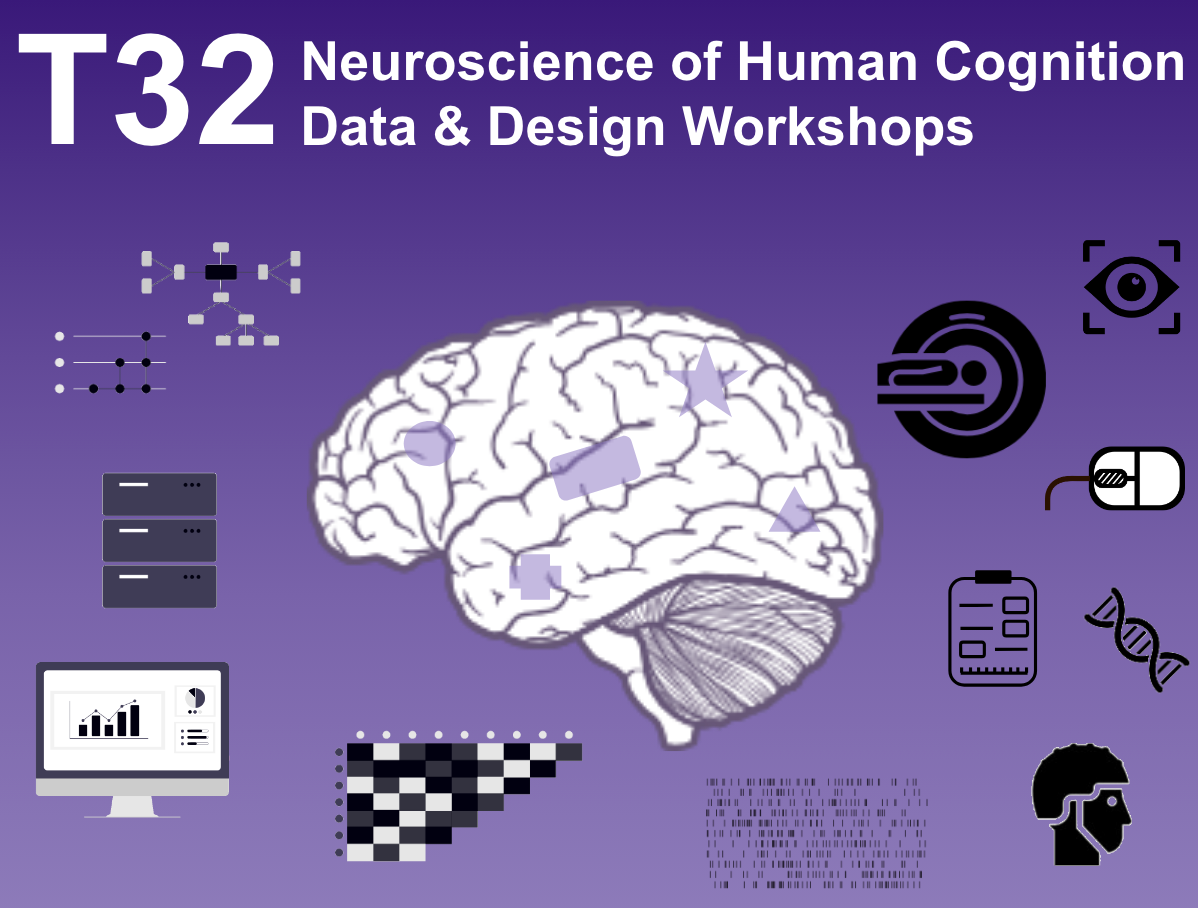
Welcome!#
Hello everyone and welcome to the course page for the "Data & Design Workshops", taught within the T32 Neuroscience of Human Cognition at Northwestern University. We’re glad to see you here!
Within these pages, we provide all the information important to follow and conduct the course, including formal aspects, requirements, lecture materials, practicals and so on. This jupyter book will include the used slides and code in a way that they can be explored in an interactive manner. You can navigate through the respective sections via the TOC on the left side and within sections via the TOC on the right side. The three symbols in the top allow to enable full screen mode, link to the underlying Github repository and allow you to download the contents as a pdf or jupyter notebook respectively. Some sections will additionally have a little rocket in that row which will allow you to interactively rerun certain parts of the practicals via cloud computing. Additionally, we support public reviews and comments through an hypothes.is plugin with which you can interact on the right side. All of this awesomeness (talking about the infrastructure and resource) is possible through the dedicated and second to none work of the Jupyter community, specifically, the Executable/Jupyter Book and mybinder project.
T32 CBMG Data & Design Workshops#
No matter the scientific field: obtaining a solid understanding of and gaining substantial hands-on experience with research processes and workflows is crucial, with the tremendously versatile field of Human Cognition and Cognitive Brain Mapping being no exception to that. Importantly, critical thinking & evaluation, research project management, quantitative & qualitative analyses, etc. enable a holistic approach to the exploration of this fascinating research field. But how should folks learn these things? The Training Program in the Neuroscience of Human Cognition approaches this problem by providing a multitude of training opportunities and support to early career researchers. One major aspect of this aim is to offer lectures and tutorials concerning foundational aspects such as data science & management, as well as open & reproducible science. This furthermore entails consultations and office hours for individual researchers and their data.
Importantly, all of this will be conducted based on open science principles. This has several important reasons: addressing the faulty direction science and academia in via changing incentive structures (open methodology, open data, open access,open peer review), enable students to become active and self-sufficient parts of the research and scientific community via the sole utilization of open-source software and open educational resources, as well as increasing the diversity and inclusivity of science and academia via the diminution of hurdles and barriers: science by everyone for everyone in an open and welcoming manner.
As you can see in the TOC on the left sidebar, there’s quite a bunch going on here. You may ask: “Oh my, is all of this really necessary?”. Well, it might depend on who you ask but this initiative and the people organizing it think so and here’s why: creating a structured and holistic way to empirically train ECR via a complex framework needs time, effort, details, and dedication. Additionally, to increase openness and sustainability, and thus ultimately the success rate of projects, these things need to be prepared and supplied in a way that is findable, accessible, interoperable and re-usable (FAIR) for as many people as possible.
This course is therefore designed to provide only FAIR content and materials.
You can use the following sections to navigate through the content of the course:
I’ve got a question!#
In case you have any questions or difficulties with the lecture and its materials, please don’t hesitate a single second to get in touch. A great way to do this is to open an issue on the GitHub site of the course. Every feedback or idea or you might have is also highly appreciated and valued.
Acknowledgements#
This initiative is supported by the T32 in Human Cognition at Northwestern University.











